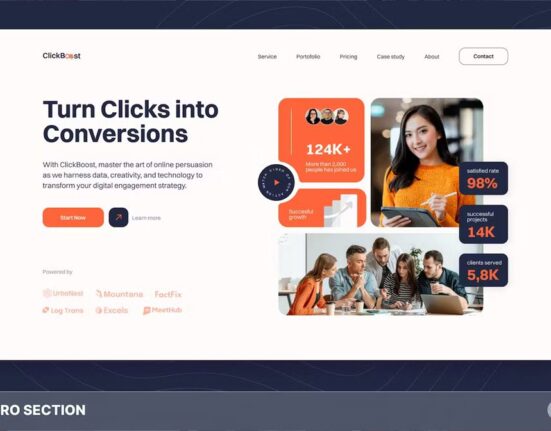Picture this: you’re 17, freshly licensed, blasting your favorite playlist, finally savoring a slice of independence. Then your parents say, “Install Life360, it’s just for safety.” Suddenly, your every turn, pit stop, and speed bump is logged like you’re part of some digital reality show. What started as “peace of mind” now feels like a high-tech leash.
This isn’t a rare teen drama. It’s the growing reality for thousands of families, sparking the big question: why Life360 is bad?
The app’s creators built it with good intentions—safety, connection, and emergency alerts. But in practice, it often blurs into surveillance, sparking tension, privacy concerns, and even emotional fallout. Some people even search for alternatives to Life360 or wonder, “Does Life360 affect mental health?” The criticisms keep growing. Let’s break down the real reasons.
Why Life360 Is Bad — The Top Concerns
1. Invades Privacy and Autonomy
It doesn’t just track where you are— this app monitors how fast you drive, when you stop, and even your braking habits. It builds a data trail of your life, one notification at a time. For teens, this feels less like “safety” and more like being constantly shadowed. The result? A loss of independence and the nagging feeling that freedom isn’t free.
2. Damages Trust Between Parents and Teens
Instead of encouraging real conversations, it often breeds suspicion and micromanagement. Teens have reported anxiety, resentment, and emotional burnout from living under its virtual gaze. One viral Reddit post, titled “Life360 has ruined my teen years,” described panic attacks and constant fear of being accused of lying—all because of an app that was supposed to “help.”
3. Enables Controlling Behavior
Life360 can be a dream tool for overly controlling parents—or worse, toxic partners. What starts as “protection” can easily morph into a weapon of control. There are countless stories of users being interrogated over minor deviations: “Why did you stop here? Why didn’t you take this route?” In unhealthy relationships, this kind of tracking can cross into coercion or emotional abuse.
4. May Sell or Share Your Data
Your data is valuable, and Life360 knows it. Investigations by The Markup revealed that the app has sold user location data to third-party brokers. While the company insists it’s “opt-in,” most users barely skim through the terms and conditions. Your daily routines, commutes, and favorite spots could end up in the hands of advertisers or insurers without you even realizing it.
5. Can Be Inaccurate and Trigger Unnecessary Panic
No app is perfect, and Life360 is no exception. GPS glitches, weak signals, or battery-saving settings can send false alerts. Imagine being accused of lying about your whereabouts because the app flagged a wrong location or route. These tech hiccups can fuel tension, mistrust, and unnecessary arguments. No wonder people look up how to turn off Life360 without parents knowing, just to get some breathing room.
Real-Life Scenarios: When Tracking Turns Toxic
Case 1: Sarah, 19, College Student
Sarah moved to a new city for college. Her parents demanded she stay on Life360. When she made an unplanned stop to visit a friend and didn’t text back quickly, her parents panicked and called the police. Sarah felt smothered and eventually started turning off her phone just to breathe.
Case 2: Jason, 16, High School Junior
Jason’s mom timed every trip he made using Life360. If he stayed at a friend’s house five minutes too long, he got a lecture. The stress made him withdraw from friends and struggle with anxiety.
Better Alternatives to Life360
If safety is the real goal, there are less invasive ways to stay connected. Some people now prefer apps like Apple’s Find My vs Life360, or even Google Maps location sharing, which offer more flexible privacy settings.
- Check-ins: A simple text or call at agreed-upon times fosters trust without constant surveillance.
- Minimal tracking apps: Some apps only send alerts during emergencies or specific zones.
But the best alternative? Real conversations. Trust and communication go a lot further than 24/7 monitoring.
Why Life360 Is Bad Isn’t Just About the App
The real issue isn’t just Life360—it’s the mindset it encourages. It sends a silent but powerful message: “I don’t trust you.” And that message can chip away at relationships, mental health, and independence.
Before installing another tracking app, ask yourself:
Are you keeping your loved ones safe—or just keeping them under control?
FAQs
Q1: Is Life360 legal?
Yes, but using it in controlling or manipulative ways can lead to ethical and psychological concerns.
Q2: Can Life360 be turned off?
Yes, but turning it off may notify other Circle members, which is why so many people search for “how to turn off Life360 without parents knowing.”
Q3: Does Life360 sell data?
Investigations show Life360 has sold location data in the past, though the company says this is opt-in.
Q4: Are there alternatives to Life360?
Absolutely. Options like Apple’s Find My vs Life360, Google Maps, or minimal tracking apps are better for families who value privacy.
Q5: Does Life360 affect mental health?
Many users report stress, anxiety, and tension in relationships due to constant monitoring, sparking online discussions about whether Life360 is bad for mental health.
Q6: What are Life360 horror stories?
From parents calling the police due to false alerts, to teens feeling spied on 24/7, negative stories fill Reddit threads and blogs.
Visit: Pure Magazine








